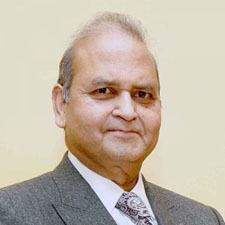
New Delhi (TIP)- Stressing that social cohabitation between same-sex couples must find some “recognition” in law, the Supreme Court on Thursday asked the Union government how far it is willing to go in taking “administrative” steps to ensure social security and welfare benefits for such couples even in absence of a legal recognition of marriage.
A Constitution bench, headed by Chief Justice of India Dhananjaya Y Chandrachud, said that when the government concedes that same-sex couples have a fundamental right to cohabit and celebrate their unions, a mere statement of denying them legal recognition of marriage will not augur well with a welfare State.
“Once you accept the fact that same-sex couples have a right to cohabit, there is a corresponding duty on the State to at least recognise that cohabitation…all the social incidents of that cohabitation must find recognition in the law…As a welfare State, as a democratic State, these are aspirations of the people that there has to be some recognition. So, what can the State do?” the bench, which also included justices Sanjay Kishan Kaul, S Ravindra Bhat, Hima Kohli and PS Narasimha, asked solicitor general (SG) Tushar Mehta.
“Why we are trying to push you to this is because we take your point that if the court were to accept the petitioners’ arguments, the court will be legislating and that it’s not the remit of the court. It’s for Parliament or state legislature. But short of that, our law has gone so far now, what will the government want to do to ensure that these cohabitatory relationships or relationships based on cohabitation or association must be recognised in the terms of creating the same sense of security, social welfare? By doing that we also ensure that for the future, these relationships cease to be ostracised in society,” it added.
The bench clarified that when it uses the term “recognition”, it does not mean “marriage”, and that the Centre may think of some other “semantics” like “partners” to identify such unions that make them entitled to certain benefits. “You may not give them a particular recognition of marriage but at the same time there is a need to bring down some barriers,” it emphasised. Asking the SG to come back with a response on May 3 when the case will be heard next, the bench gave examples of certain basic social functions such as joint bank accounts, joint guardianships and pensionary benefits, to point out that these are “human issues” of “day-to-day life” which the same-sex couples face due to lack of recognition by the State and its institutions.
While the Constitution bench is yet to accept the government’s position that the issue of legal recognition of marriage is beyond judicial determination, it opened a completely new dimension to the case on Tuesday proposing a middle path. However, it is still to be seen how the petitioners respond to this course of action before the court.
Urging the SG to take a “non-adversarial stand” on the issue, the bench said: “From that point of view, we would be more than willing to have the government make that statement before us because the government has ministries dedicated to these purposes…This should come from you because ultimately, we want some elements of a broad sense of a coalition. We are also conscious of the fact that so much a representative democracy should achieve in our country.”
While Mehta submitted that he would have a consultation with the competent authorities in the government about possible solutions to these “sociological” problems, the top court was categorical that there is a lot that the Centre can do even without granting legal recognition of marriage to same-sex unions. Source: HT





Be the first to comment